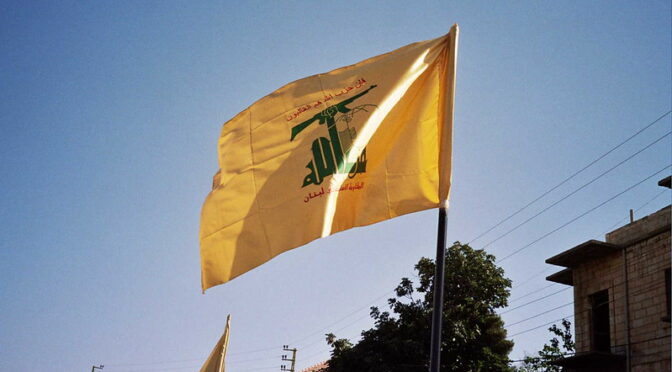Article published in The Daily Telegraph, 19 September 2024. © Richard Kemp
Israel’s leaders have announced that the focus of the war is now shifting northwards from Gaza to Lebanon. This follows a lightning bolt delivered to the Hezbollah terror army in which dozens of terrorists were killed and over 3,000 wounded when their pagers and walkie-talkies exploded.
It’s not clear yet how this extraordinary event, perhaps the greatest single blow ever inflicted on a terrorist organisation, connects to the announced strategic shift.
But what we do know is that the IDF is reinforcing the divisions that have defended against Hezbollah’s daily attacks on the northern front for the past year. These reinforcements are coming out of Gaza, which is possible now because Hamas as an organised terror army has been destroyed.
Last week I drove with the IDF along the Philadelphi Corridor that forms the border between Gaza and Egypt. While Israel holds this terrain, Hamas cannot reconstitute. Although the fighting is far from over – there are still many hostages to free, terrorists to eliminate and tunnels to destroy – sufficient forces can now be released for the north.
The conflict may involve piling pressure on Hezbollah in the wake of the pager attacks to force them to cease fire and move north of the Litani river. If this fails, then a large-scale air and ground offensive may become necessary.
A struggle in the region won’t be easy, but it can certainly be won. We have seen the extraordinary achievements of the IDF in Gaza, fighting from the air, on the ground and beneath the surface.
In the past 11 months they have killed an estimated 20,000 terrorists against 340 IDF deaths. On probably the most complex battlefield seen in modern warfare, they have also achieved great success in minimising civilian casualties and maximising aid deliveries.
Much of this experience from Gaza will be applied in Lebanon. There are differences of scale, terrain, population and tactics, but Hezbollah is another Iranian terror proxy like Hamas, trained, armed and equipped by Tehran’s Islamic Revolutionary Guard Corps.
Judging by events in Lebanon in the past few days, Israel’s intelligence penetration of Hezbollah is substantial, a factor that will have a major bearing on the prosecution of the war.
Severely damaging Hezbollah is not only in Israel’s interests but ours too.
In 2015, British security services, acting on Israeli intelligence, disrupted a Hezbollah bomb factory in London. Years before, Hezbollah was involved in killing hundreds of British and American soldiers in Iraq and Afghanistan by Iranian proxies.
Iran is the controlling hand behind the conflict in the Middle East, including Houthi attacks on international shipping in the Red Sea and attacks on US bases in Syria, Jordan and Iraq. Tehran has set itself firmly against Western interests in Europe by supplying arms to Russia for attacking Ukraine, and it is on the threshold of becoming a nuclear armed state.
Israel deserves Britain’s support as its multi-front war with Iran shifts northwards. It does not deserve our shameful arms suspension, abstention on a Palestinian initiated anti Israel vote this week at the UN, or Starmer’s hand-wringing message of ‘deep concern’ over the pager attacks.
At a time when this country is trying to weaken Iran with new sanctions for supplying ballistic missiles to Russia, these moves have the opposite effect and show diplomatic illiteracy.
Image: Flickr

